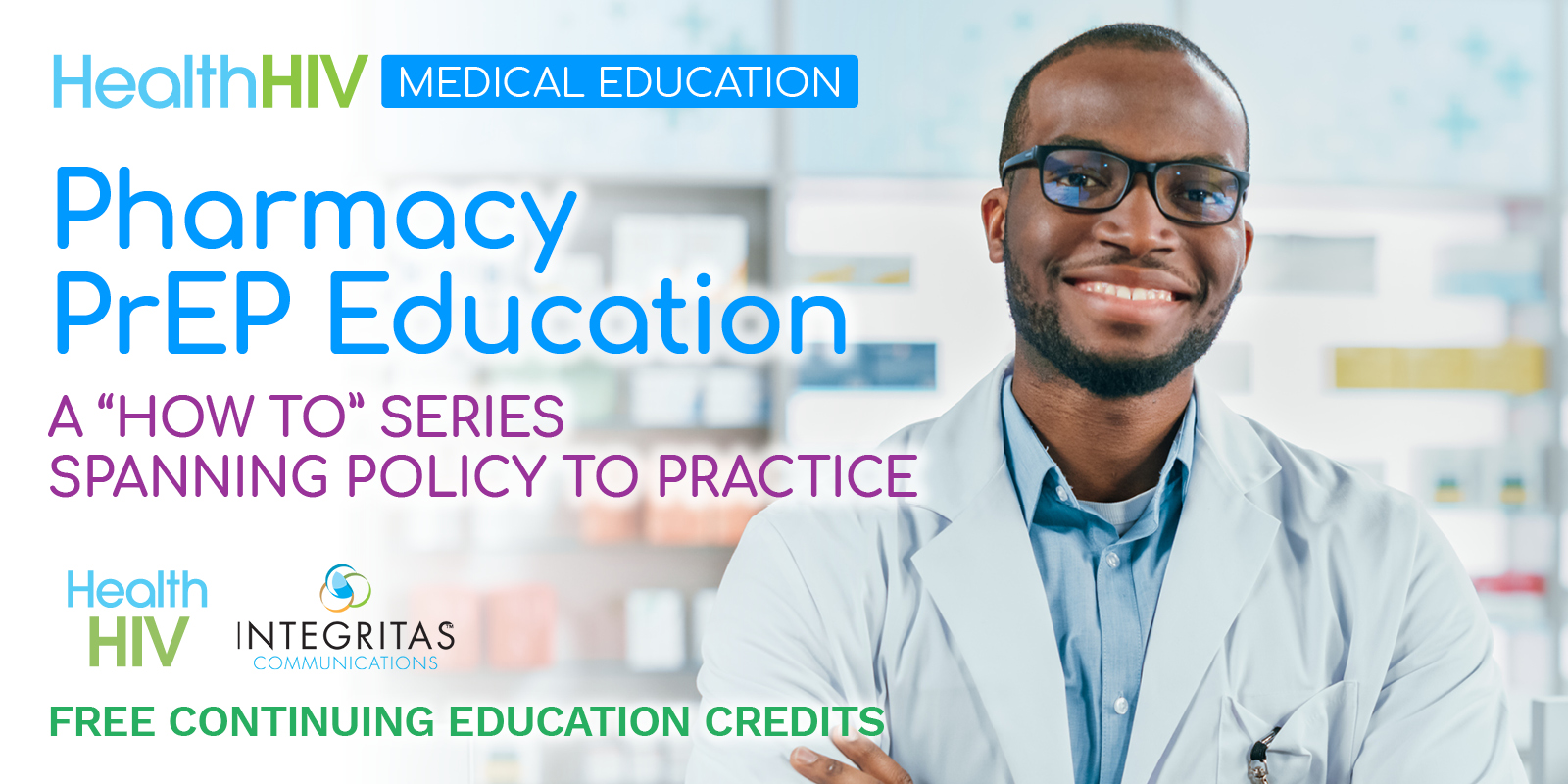Providing PEP/PrEP in the Pharmacy Setting: A Comprehensive User Guide
This activity is jointly provided by Global Education Group and Integritas Communications.


This activity is supported by an educational grant from Gilead Sciences, Inc.
This comprehensive electronic/downloadable monograph has been developed to specifically support the needs of pharmacists now challenged to come up to speed on guidelines and protocols for HIV preexposure and postexposure prophylaxis (PrEP and PEP). A number of states in the United States have expanded the pharmacy scope of practice and this continuing education activity will provide the necessary clinical information for initiating and monitoring PrEP and PEP treatment in a pharmacy setting. In December 2021, the Centers for Disease Control and Prevention (CDC) released the 2021 Updated PrEP Clinical Practice Guidelines, and pharmacists now need to be trained to incorporate these updated guidelines into their daily practice. Providing 2.0 contact hour(s) (0.20 CEUs) from the Accreditation Council for Pharmacy Education, this monograph addresses all content to fulfill most state Board of Pharmacy training requirements for pharmacists wishing to become PrEP and PEP providers, such as:
- HIV epidemiology
- Pharmacology, safety, and efficacy of HIV medications used for PEP and PrEP (including oral tenofovir disoproxil fumarate (TDF)/emtricitabine (FTC), oral tenofovir alafenamide (TAF)/FTC, and long-acting injectable cabotegravir)
- Assessment of sexual health and HIV risk
- Trauma-informed care
- Patient counseling
- Screening for HIV and sexually transmitted infections (STIs), and laboratory testing to determine PrEP/PEP eligibility
- 2021 CDC Updated PrEP Clinical Practice Guidelines for PrEP eligibility, prescribing, and management
- Clinical practice guidelines for PEP eligibility, prescribing, and management
- In-pharmacy implementation
If you are a pharmacist practicing in Nevada, Oregon or Virginia, consider the state primer CE activity for your state as well.
Target Audience
The educational design of this monograph addresses the needs of clinical and community pharmacists involved in the treatment of patients at risk for HIV infection as well as managed care pharmacists, pharmacy benefit managers, and specialty pharmacists.
Learning Objectives
After completing this activity, participants will be better prepared to:
- Describe the legal and professional parameters that allow for pharmacist-led or pharmacy-based direct delivery of postexposure prophylaxis (PEP) and preexposure prophylaxis (PrEP) services
- Assess patient’s risk of HIV acquisition based on the type of exposure
- Determine patients’ PEP/PrEP eligibility through HIV testing, sexual history-taking, and appropriate laboratory testing
- Implement guideline-driven PEP/PrEP-prescribing principles regarding treatment initiation, monitoring, and referral
- Identify infrastructure needs for in-pharmacy implementation of a PEP/PrEP prescribing initiative
Faculty
Melissa Badowski, PharmD, MPH, FCCP, FIDSA, BCIDP, BCPS, AAHIVP
Clinical Associate Professor
Section of Infectious Diseases Pharmacotherapy
Department of Pharmacy Practice
University of Illinois at Chicago, College of Pharmacy
Chicago, Illinois
Shauna Applin, A-NP, AAHIVs
HIV Clinical Director
Adult Medicine Lead Provider
Community Health Care
Hilltop Regional Medical Center
Tacoma, Washington




